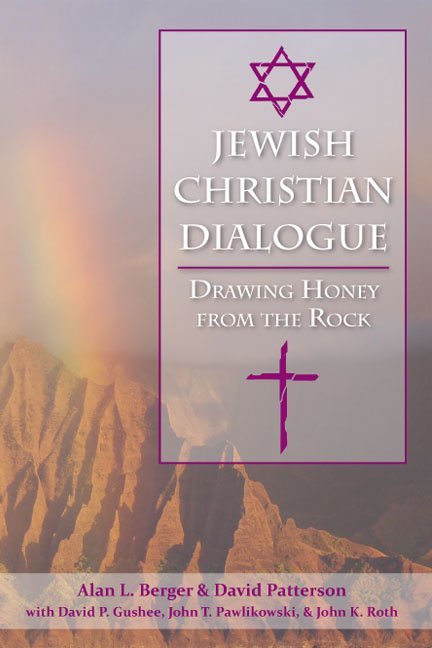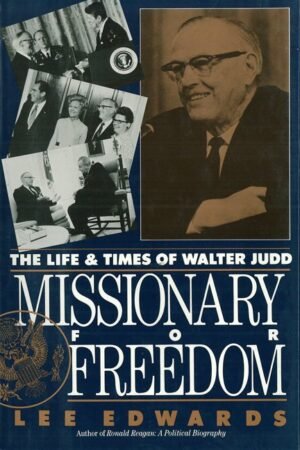Description
—Midwest Book Review“This book, if heeded, could spur the dialogue into becoming a much more exciting and fruitful enterprise.”
—Shofar: An Interdisciplinary Journal of Jewish Studies
“Informative, thought-provoking, an important analysis of urgent issues facing our generation.”
–Elie Wiesel, author of Night
“Berger and Patterson, two distinguished American professors of Jewish studies, have combined their talents to produce a book on contemporary issues in Antisemitism facing Jews and Christians together. The book is enriched by the addition of the lively dialogue in which Berger and Patterson engage theologically with their Christian counterparts: David Gushee (Evangelical), John Pawlikowski (Catholic), and John Roth (Protestant.) The dialogue alone is worth the price of the book. What makes the dialogue immensely useful is mounting evidence of the recrudescence of Antisemitism in the contemporary world. Berger and Patterson assemble a sizable fact sheet demonstrating that Antisemitism is alive and well today, but now the old Jew-hatred appears in newer and not always easily recognizable faces…. The discussion that follows the presentation of the contemporary antisemitic fact sheet shows the willingness of Christian theologians like Gushee, Pawlikowski, and Roth to confront some of the outstanding questions provoked by Antisemitism and the Holocaust: Christian triumphalism, the meaning of the Resurrection, the state of Israel, Muslims, forgiveness, and Messiah. Their responses, together with the reactions of Berger and Patterson, could very well set the agenda for any future Jewish-Christian dialogue.”
—Journal of Ecumenical Studies
“Jewish-Christian Dialogue: Drawing Honey from the Rock represents a unique contribution to the literature of the Jewish-Christian dialogue. Unlike most books in this genre, it is actually dialogical, and thus demonstrates the sort of encounter that it advocates. The honest give-and-take among the authors is evidence that they respect each other enough to tell the truth, painful though it may be. On a number of crucial issues, the book documents where the dialogue stands and where it must go if the post-Holocaust opportunity for Jewish-Christian rapprochement is to be realized. This book will provoke, stimulate and illumine. Anyone with an interest in Jewish-Christian relations needs to read it and reflect upon it.”
–Stephen R. Haynes, Professor of Religious Studies, Rhodes College
“In this lucid and cutting-edge study, Jewish and Christian scholars have reflected on their faith traditions and have pursued the historical as well as theological issues that have separated their respective communities for nearly two millennia. Twin premises guide this scholarly exposition: Christians and Jews should not fear the differences that separate them; dialogue requires distinctive perspectives. Berger?s and Patterson?s work is timely and establishes a network of challenges for furthering dialogical experiences.”
–Donald Dietrich, Department of Theology, Boston College
“…explores a crisis in Jewish-Christian relations rooted in history, culture, theology and the lack of genuine dialogue.”
—Miami Herald
Jews and Christians are bound by an intimacy unprecedented in the history of religions; Jesus, Mary, Paul, and the first apostles were Jewish. Theologically, Christianity needs Judaism. But the relationship between the two religions is fundamentally asymmetrical, both demographically and theologically.
There are approximately 1,200,000,000 Catholics/Christians worldwide. Jews, on the other hand, number some fourteen million. John Roth succinctly states the theological imbalance: ?Nothing in Jewish life logically or theologically entails Christian existence. Christian life, however, does depend essentially on Jewish life. Christianity makes no sense, it would not even exist, if the world contained no Jewish history.?Given this intimate connection, one might assume that dialogue between the two religions would come naturally. The opposite, however, is the case.
Authentic Jewish-Christian dialogue is a new historical phenomenon whose birth is directly related to the horror and shame of the Holocaust. Auschwitz marked a turning point. From the ashes of the death camps there emerged an ember of hope. The murder of six million Jews in the heart of Christian Europe precipitated a theological crisis for both traditions.
For Jews, adherence to the Covenant provided no protection from gas chambers and crematoria; regardless of belief or disbelief in the Covenant, birth itself was a death sentence. Jews felt abandoned by God and humanity. The survivor Alexander Donat writes, ?The very bases of our faith had crumbled: the Polish fatherland whose children we had always considered ourselves; two thousand years of Christianity, silent in the face of Nazism; our own lie-ridden civilization. We were alone, stripped of all we had held sacred.?
For Christians, devotion to Jesus as the Christ who taught an ethic of love failed to prevent them from becoming murderers, as planners, implementers, and passively as bystanders to the Endl?sung, the ?Final Solution? of the Jewish question. There were very few righteous who viewed themselves as their brother?s keeper. Franklin H. Littell states that the Holocaust, ?more than anything else that has happened since the fourth century,? has called into question the integrity of the Christian people and confronted them with an acute identity crisis.?
TABLE OF CONTENTS
Preface
One
Introduction
Some Fundamental Issues
What Dialogue Can Achieve
Barriers to Dialogue
Christian Antisemitism as a Necessary Condition for the Holocaust
The Crisis in Jewish-Christian Relations Manifest in Popular Culture
Post-Holocaust Contexts
Areas Addressed in This Volume
Two
The Symptoms of a Malady
A Brief History of Post-Holocaust Jewish-Christian Dialogue
The Holocaust?s Threat to Jewish Tradition
The Holocaust?s Threat to Christian Tradition
The Illusion of Relation
Three
Historical Considerations from a Jewish Perspective
The Jewish Jesus
History and Myth
The Formulation of Christian Doctrine
Antisemitism and Anti-Judaism: Is There a Difference?
Four
Theological Issues
Fundamental Differences between Jewish and Christian Teaching
The Theological Necessity of Antisemitism in Christian Thought
Antisemitism as the Sin against the Holy Spirit
The Meaning of Vatican II
A Church Divided: Theology and Politics
Five
Can There Be a Jewish-Christian Dialogue after Auschwitz?
Post-Holocaust Challenges
Promise and Peril: We Remember: A Reflection on the Shoah
Promise and Peril: Dabru Emet
Saying Out Loud What We Are Afraid to Say
Six
Dialogue in Action
Getting Started: The Christians? Reply
The Issue of Forgiveness
Europe and the Rest of the World
The Muslims
The State of Israel
Mel Gibson?s Passion of the Christ
Theological Stumbling Blocks
Seeking the Messiah
The Concept of Conversion
Doing God?s Will: The Righteous
Hebrew Scriptures
Do We Worship the Same God?
Seven
Conclusion
What Have We Learned
Contemporary implications
The Current State of the Dialogue
The Persistence of Antisemitism
Questions for the Future
Index
Endnotes
Bibliography
About the Authors and Contributors







Reviews
There are no reviews yet.